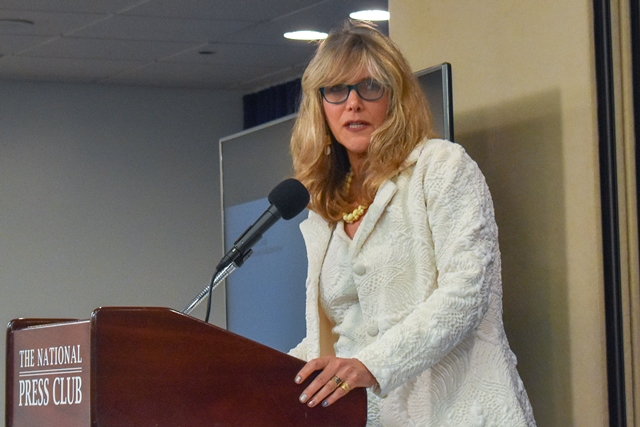12 September 2018. A clinical trial with a design that allows for changes in its processes to meet the needs of individual patients says its results helped advance 7 new drugs for breast cancer into review by FDA. Leaders and participants in the I-SPY2 Trial described progress made by the study in a news conference today in Washington, D.C.
The I-SPY2 Trial — short for Investigation of Serial Studies to Predict Your Therapeutic Response with Imaging and Molecular Analysis 2 — aims to change the way clinical trials for breast cancer are designed and conducted, to focus more on improving patient outcomes and reduce the costs and time needed for randomized placebo-controlled clinical trials, considered the gold-standard for testing new therapies. The I-SPY program began in 2007, founded by Laura Esserman, professor of surgery and breast cancer specialist at University of California in San Francisco and biostatistics professor Donald Berry at MD Anderson Cancer Center in Houston. An earlier I-SPY1 trial tested the safety of proposed drugs, but also devised and refined processes for reducing time and cost of testing new drugs while enhancing patient outcome prospects.
The newer trial began in 2010, but now is running at 16 sites in the U.S., enrolling some 1,300 breast cancer patients. Spurring the need for a new type of trial, said Esserman at the news conference, was the urgency to find solutions for patients, “who don’t have the luxury of time while we get our act together.” I-SPY2 uses innovations to reduce time and resources for trials, such as a master protocol, where a single trial design can be employed to test a series of precision-medicine treatments, with participating patients first screened for their biomarker profiles.
I-SPY2 employs biomarkers and MRI imaging to identify breast cancer patients with a high risk of disease recurrence, but also with the disease in its early stages, before it metastasizes, or spreads to other parts of the body. Catching the disease in its early stages, Esserman noted, allows for drugs that are less toxic than traditional chemotherapy and also provide for a greater likelihood of a complete response. The primary endpoint, or objective, of I-SPY2 is complete disappearance of the patients’ tumors before surgery, known as pathologic complete response, within 6 months from the start of treatment. At that point, the patient is evaluated for prospects of remaining cancer-free for 3 to 5 years.
Berry, co-principal investigator of I-SPY2 with Esserman, called the trial “a learning system,” where those interventions doing well are used more than treatments that are not working, rather than plowing ahead with the same drug with all participants. The trial employs an adaptive design with algorithms that make it possible to alter factors such as treatment regimens or sample sizes based on interim results. This approach seems particularly suited to precision medicine, where treatments are designed to meet the specific molecular profile of participants.
At the news conference, the I-SPY2 Trial received an endorsement from Janet Woodcock, director of the Center for Drug Evaluation and Research at the U.S. Food and Drug Administration. Woodcock said most clinical trials test a single intervention, measured by responses of average patients. She noted, however that with studies like I-SPY2, “We now have design and statistical tools to improve outcomes for all patients, not just the average patient.”
Esserman added that FDA is “out there championing the trial.” With FDA’s support, she said, I-SPY2 is now testing 19 drugs, with 7 of those drugs advanced to FDA review. Two of those therapies are receiving accelerated approval and one treatment is designated as a breakthrough therapy by FDA.
Vidya Balakrishna, a software company executive and participant in I-SPY2, told the news conference she was diagnosed with triple-negative breast cancer, where the tumors do not express hormonal or HER2 receptor proteins that are targets for most cancer drugs. In most cases, she said, this diagnosis means a poor prognosis and few treatment options that have not changed for 50 years. But after participation in I-SPY2, she is now cancer-free, and finally, “doesn’t think constantly about cancer.”
The I-SPY2 trial is sponsored by the Quantum Leap Healthcare Collaborative, a not-for-profit consortium of medical researchers and Silicon Valley entrepreneurs to improve clinical trial recruitment, conduct, and management.
More from Science & Enterprise:
- A.I. to Identify Treatment Drivers for Colorectal Cancer
- Machine Learning Detects More Cancer Mutations
- A.I., Imaging Shown to Predict Immunotherapy Success
- Precision Medicine Technique Devised for Brain Tumors
- Blood Tests Shown Able to Identify Early Lung Cancer
* * *


 RSS - Posts
RSS - Posts
[…] Personalized Breast Cancer Trial Advances 7 Drugs. 12 September 2018 […]